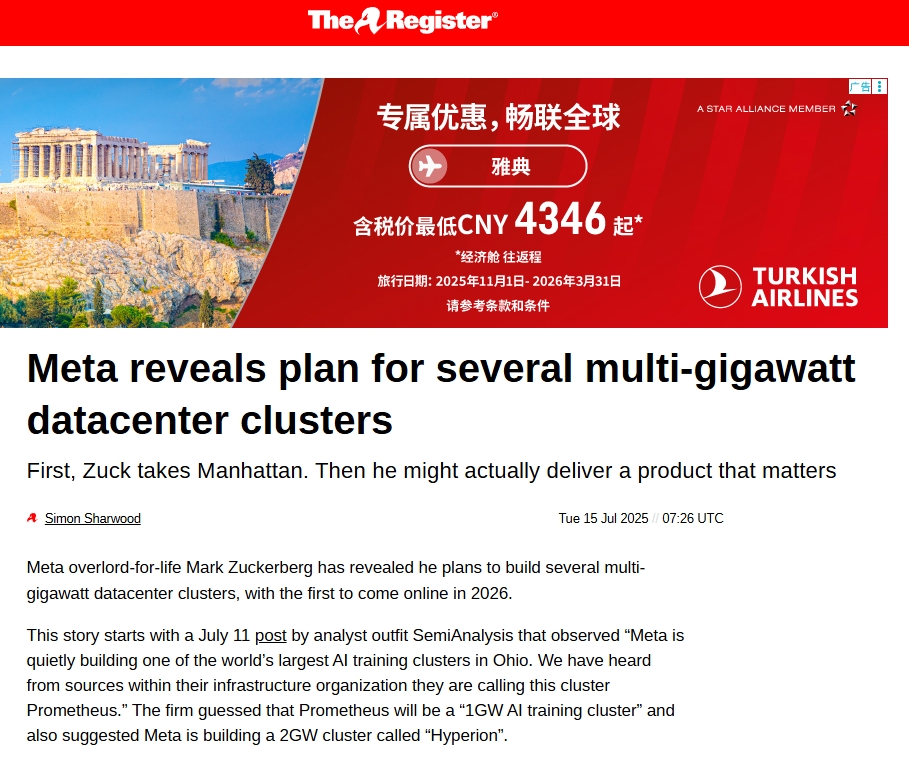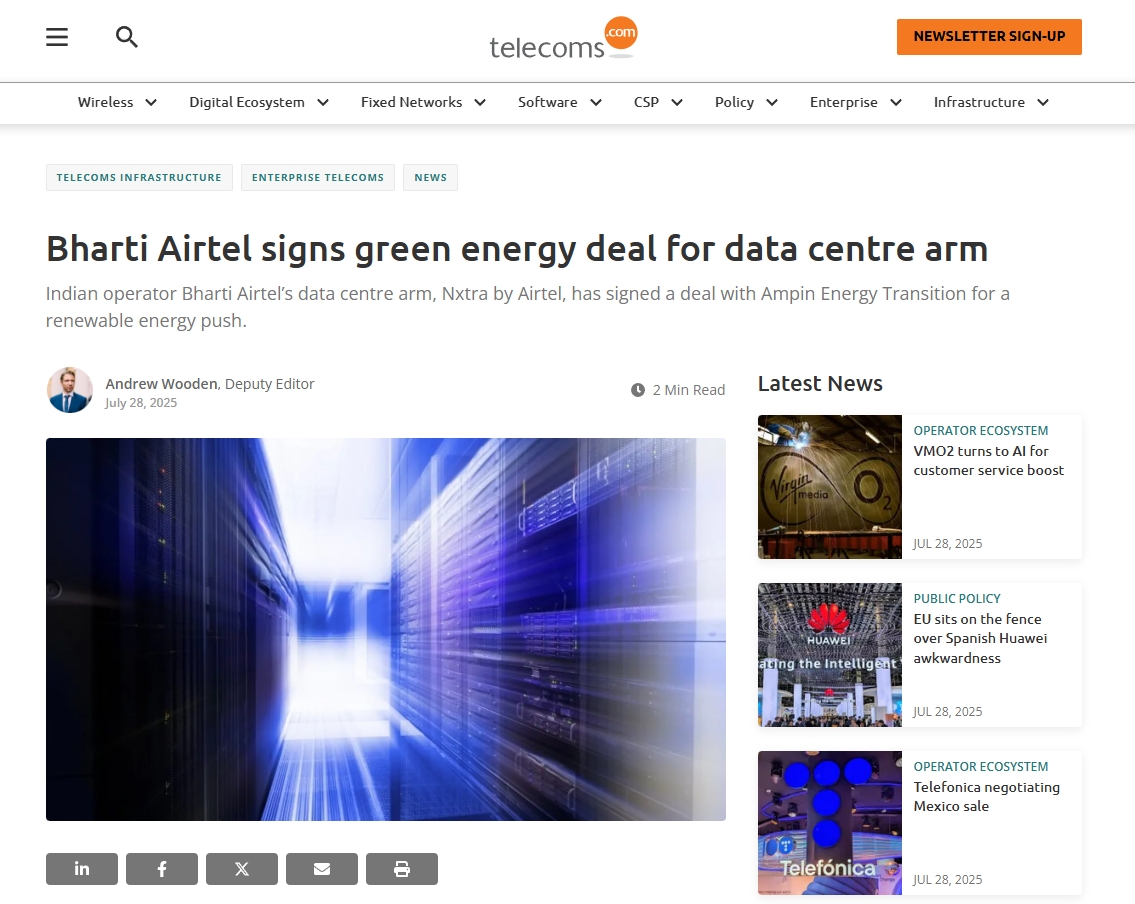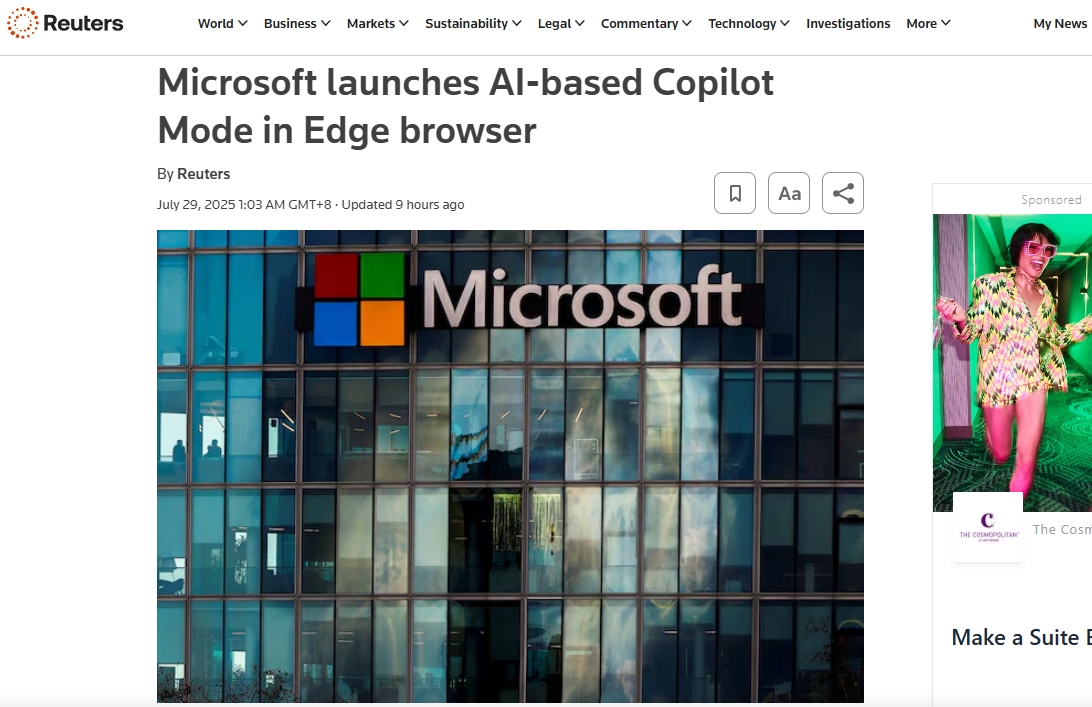First, Zuck takes Manhattan. Then he might actually deliver a product that matters
Meta overlord-for-life Mark Zuckerberg has revealed he plans to build several multi-gigawatt datacenter clusters, with the first to come online in 2026.
This story starts with a July 11 post by analyst outfit SemiAnalysis that observed “Meta is quietly building one of the world’s largest AI training clusters in Ohio. We have heard from sources within their infrastructure organization they are calling this cluster Prometheus.” The firm guessed that Prometheus will be a “1GW AI training cluster” and also suggested Meta is building a 2GW cluster called “Hyperion”.
On Monday, Zuckerberg used his Facebook account to correct that post.
“We're actually building several multi-GW clusters,” he wrote. “We're calling the first one Prometheus and it's coming online in '26. We're also building Hyperion, which will be able to scale up to 5GW over several years. We're building multiple more titan clusters as well. Just one of these covers a significant part of the footprint of Manhattan.”/He demonstrated the colossal size of these facilities in a video that includes the following frame to illustrate the size of Meta’s future datacenter clusters by showing how they would fit on New York City’s island of Manhattan.
The above looks like a facility that stretches from Washington Square to Harlem, around 6.5 miles (10.5 km), and occupies about 80 percent of Manhattan’s 2.5-mile (4km) width.
Zuck also wrote: “For our superintelligence effort, I'm focused on building the most elite and talent-dense team in the industry. We're also going to invest hundreds of billions of dollars into compute to build superintelligence. We have the capital from our business to do this.” He also promised “Meta Superintelligence Labs will have industry-leading levels of compute and by far the greatest compute per researcher,” and said “I'm looking forward to working with the top researchers to advance the frontier!”
Zuck is right: Meta does have billions to spend. Whether he can turn that money into profit is questionable, however, as the company has splashed around $60 billion on its “Reality Labs” since 2020, in pursuit of virtual reality and metaverse products and services. The company has delivered some impressive VR headsets and smart glasses, without pointing to profits, huge user numbers, or developer enthusiasm.
Meta’s AI business has produced sophisticated open-source models, but its AI-powered services available to users of its social networks aren’t remarkable compared to rival offerings. The company’s AI apps that target and create advertising have made a decent contribution to revenue growth, and Zuckerberg predicts they will make a bigger impact in coming years.








